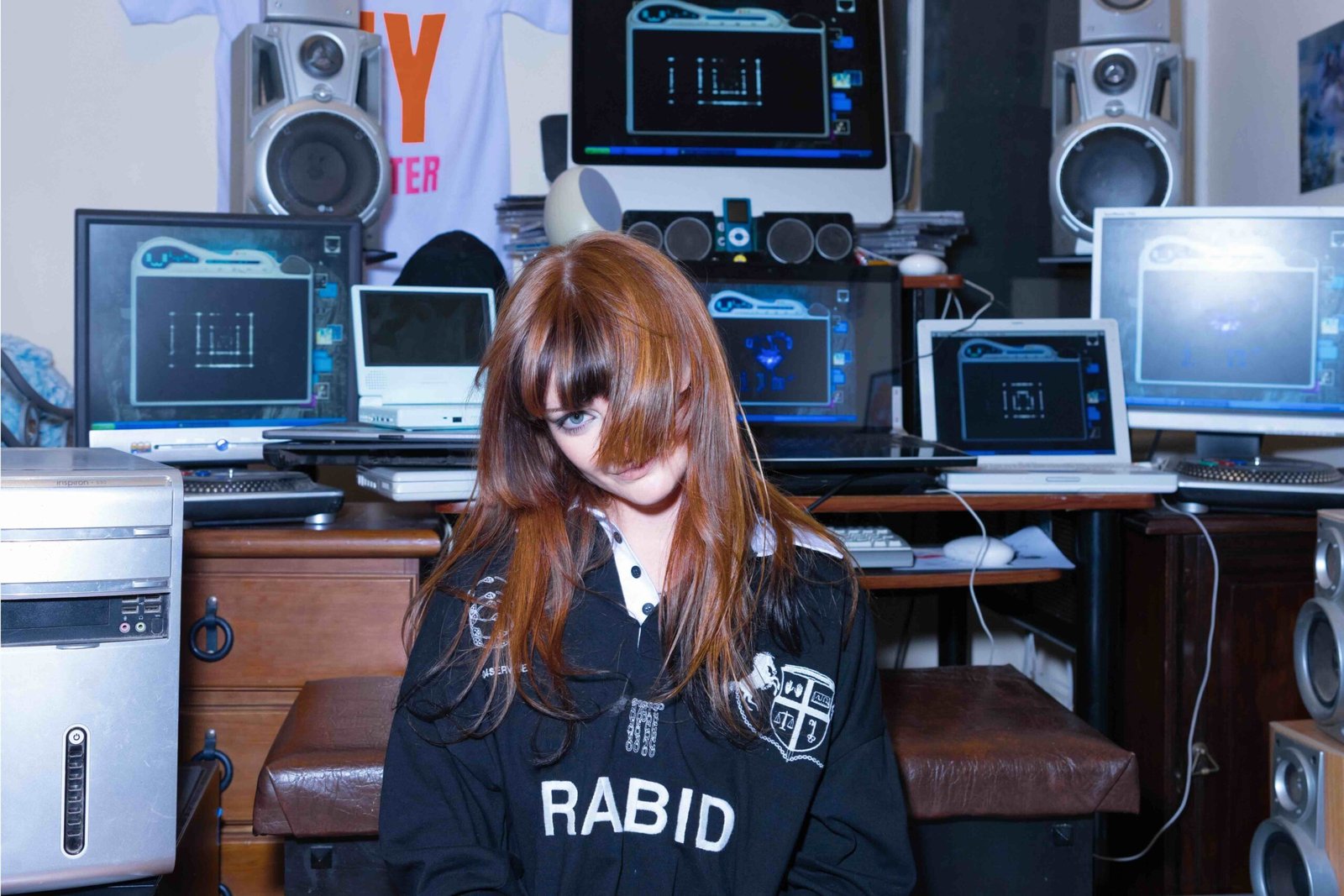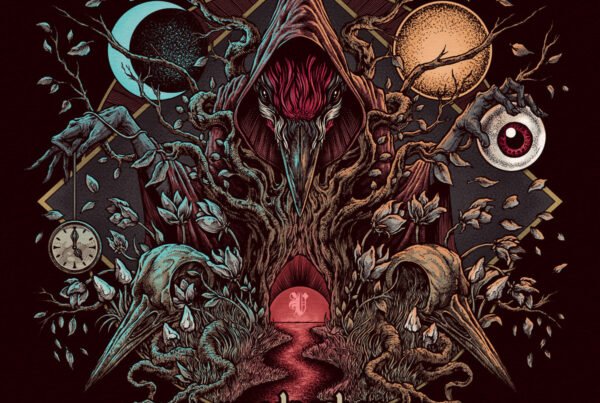Australian producer. songwriter, and DJ Ninajirachi explores the tumultuous romance of technology through sharp EDM and hyperpop on her debut album, I Love My Computer.
Release date: August 8, 2025 | NLV | Facebook | Instagram | Website | Bandcamp
I cannot fathom myself in most points of my life being a fan of hyperpop. For one thing, it has only been a genre for maybe 10 years, but most of my life I didn’t really connect with dance and electronic music. This is the same for most pop music released over the last 20 years. Looking beyond myself, I cannot think of anyone that I know who is around my age (39) who, at least openly, finds this genre appealing. I think that makes sense, to a degree. Hyperpop is the brainchild of younger folks than us, kids who have always had the internet and all of the convenience and new stress and anxiety that comes with our ceaseless connectivity. Despite all of these factors, I am increasingly intrigued and enjoying the genre as well as other electronic styles. In fact, I think of hyperpop as a beautiful synthesis that amplifies the sugar-coated veneer of pop with ADHD genre-hopping that can include house, dubstep, techno, hip hop, nu-metal, and even ska across a single album, maybe even a single song. Its idiosyncrasies and unpredictability are a feature, not a bug.
Enter my current hyperpop hyperfixation: I Love My Computer by Australian producer/DJ/songwriter Ninajirachi. I Love My Computer is technically Ninajirachi‘s debut album, but it is far from her first foray, releasing several EPs and singles, gaining international acclaim, playing festivals, opening for Charli XCX, and even writing the intro program to Ableton Live 11, one of, if not the most used digital audio workstation programs in the world. She has made a hell of a name for herself by 25 years old. I Love My Computer feels like a culmination of all of that experience into a sort of dance concept album that is a cautionary ode to her computer, for better or worse, an integral part of modern music production and all of our lives.
‘Um, do you wanna listen to it?‘ is the first thing you hear on “London Song” and the sample gets repeated throughout the album, beckoning us into Ninajirachi’s digital world. The song’s sample repetitions sing-along chorus, and ridiculously hard dance drops welcome you into I Love My Computer. The energy is infectious, and it makes me want to blow out the soles of my shoes in the club. Fortunately, Ninajirachi maintains that energy throughout most of the album, forgoing some of hyperpop’s wilder detours to focus on an absolute banger of an EDM album. The sample playbacks, roof raising BPM, and smooth transitions from song to song playout like an expert DJ set. “IPod Touch” oozes teenage nostalgia in its lyrics with bubblegum melodies and production that veers into pulsating big room house energy before abruptly flipping into the more audacious and techno leaning “Fuck My Computer.” ‘I wanna fuck my computer, because no one in the world knows me better,‘ she sings, taking the album’s title to its most absurd manifestation.
This rotation of brilliant house and techno and pop covers the first five tracks until “ฅ^•ﻌ•^ฅ” introduces an acoustic guitar and briefly slows things down into the epic build-up of “All I Am.” Even the more emotional “Infohazard” soars into a massive house beat while describing being haunted by computer images of a headless man that she saw when she was ‘four and ten.’ While I love every track on this album, “Infohazard” is special. Never before have I wanted to dance to internet-induced childhood trauma from what I imagine are the beheading videos that used to pop up on YouTube, but here I am. It becomes wilder the more I think about it, as if through producing and writing this song, Ninajirachi has processed what is probably a very common trauma into something we can dance away. I was desensitized to violence through the internet; this song is like a healing balm for anyone unwillingly exposed to mankind’s horrors.
While some songs seem to have trivial subject matter on the surface, something catchy to dance to, they carry a level of depth and maturity that surpasses most people online. The aforementioned “Fuck My Computer” carries the punk and new wave spirit of ostentatiously anthropomorphizing technology into something erotic while simultaneously speaking to how technology has alienated us to the point that people are falling in love with artificial intelligence and sex robots. “Delete” emphasizes this, confessing to the embarrassment of posting a picture with a song in the hopes that their crush would see it, distilling it into a, ‘modern mega digital meta mating ritual.’ Other tracks deal with yearning and breakups in relationships like on the glitchy “Battery Death” or the more soulful “It’s You” (with Daine).
The most impactful track, for me, is the ballad “Sing Good,” which narrates Ninajirachi‘s start with music, from listening to music on the bus on the way to school, to Googling ‘what’s a chorus?‘ to failing a school music project, to settling on, ‘’cause I can’t really sing good/but I’m still gonna try it/if only ’cause I like the way it feels.‘ This is one of the most inspiring songs I have heard in a long time, although I don’t really listen to a lot of inspiring music. It is sung and delivered with such honesty and care that you forget that you were just working up a sweat, maybe by yourself in your kitchen, if only because it feels good. That’s a message that you rarely see in popular music, in ads for synthesizers and music software, in courses or from instructors, but the essence of making music isn’t a career. It is the love of the art and craft, but they all seem to want to monetize it. Have fun, for fuck’s sake.
Ninajirachi has crafted one of the best and most endearing dance albums of the year. Her complex and frequently shifting production stays close enough in the traditional EDM lane that hyperpop’s reputation of jarring sonic detours feel more subdued, streamlining the genre quirks into masterful production flourishes. Energizing and inspirational, I Love My Computer is primed to shake speakers in clubs around the globe with its infectious hooks and DJ-ready bops, while its honesty, innocence, and charm keep you coming back for more.






